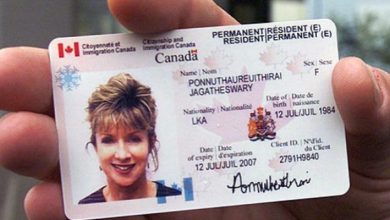Protecting Your Rights: Legal Options Following a Personal Injury in Nevada
If you or a loved one has suffered a personal injury in Nevada, understanding the available legal remedies is crucial in obtaining justice and compensation. Personal injury law encompasses a wide array of incidents, including auto accidents, medical malpractice, or even slip and fall accidents. Navigating this intricate legal arena requires an awareness of your rights and the procedural nuances specific to Nevada’s legal system. The path to compensation can be fraught with complexities that often necessitate professional legal guidance. Below, we will delve into the key aspects of personal injury law in Nevada, offering insights into statute limitations, liability, settlement options, and the unparalleled advantages of engaging with a skilled attorney.
Understanding Personal Injury Law in Nevada

In Nevada, personal injury cases hinge on proving negligence, where one must demonstrate that another party’s lack of reasonable care led to harm. The state follows modified comparative negligence, allowing compensation proportionate to fault, provided it’s less than 50 percent. Joint and several liabilities are also recognized, impacting cases with multiple defendants by holding each responsible for full damages within limits. Damages cover medical expenses, lost income, and pain and suffering, with punitive damages possible for severe misconduct.
Navigating Nevada’s personal injury laws can be complex, making it essential to enlist the expertise of a reputable Las Vegas personal injury law firm. Such professionals understand state statutes and can effectively advocate for your rights, ensuring thorough legal representation tailored to your case’s specifics.
Navigating the Statute of Limitations for Personal Injury Claims in Nevada
In Nevada, filing a personal injury lawsuit must typically occur within two years from the injury date to avoid losing the right to compensation. However, exceptions apply, especially for medical malpractice cases and instances where injuries weren’t immediately evident, which may extend this period under the discovery rule. Government-involved cases also involve additional procedures and shorter deadlines, necessitating early legal consultation to ensure all requirements are met.
Navigating Nevada’s statute of limitations is crucial in personal injury claims. The standard two-year window from the injury date can vary based on factors like medical malpractice or delayed injury discovery. Cases involving government entities add further complexity, requiring adherence to specific pre-filing notice procedures and shorter timelines. Seeking early guidance from experienced attorneys helps in meeting deadlines and managing procedural complexities effectively.
Determining Liability and Proving Negligence in Nevada Personal Injury Cases
In Nevada’s legal landscape, proving fault in personal injury cases is crucial. The plaintiff must meticulously show that the defendant owed a duty of care, breached it, and directly caused the injury, resulting in measurable damages. This burden requires solid evidence like medical records, witness statements, and expert analyses to support the claim effectively.
Defendants often try to shift blame by citing contributory negligence, complicating matters further. Overcoming these challenges demands a strong case with compelling arguments and thorough documentation. Seeking legal representation can significantly strengthen the plaintiff’s position, leveraging expertise to navigate complexities and hold responsible parties accountable.
Exploring Settlements vs. Trials: Choosing Your Best Course of Action

When deciding on a personal injury claim, the key choice often boils down to settling or going to trial. Settling can mean faster compensation, but it might not fully cover all damages. Trials could lead to larger awards but come with uncertainty and lengthy legal processes. Each case needs careful evaluation based on its merits and the potential outcomes in court.
Navigating this decision is complex and benefits from legal expertise. Negotiating a settlement requires skill to ensure fair compensation that acknowledges the injury’s impact. The decision should align with what best serves the injured party’s interests, with legal guidance playing a crucial role in weighing the options.
How Hiring a Nevada Personal Injury Attorney Can Maximize Your Compensation
Hiring an experienced Nevada personal injury lawyer can make a crucial difference in obtaining rightful compensation. Their deep understanding of local laws and precedents significantly influences case outcomes by navigating legal complexities and anticipating opposition strategies, thereby strengthening the plaintiff’s position. Lawyers ensure accurate valuation of claims, considering all potential damages like future economic losses and emotional distress, aiming to secure fair compensation comprehensively.
Beyond transactional representation, attorneys also provide invaluable emotional support during what can be a stressful recovery period. Their expertise allows injured parties to focus on healing, reassured that their legal matters are expertly handled. Many firms now offer services on a contingency fee basis, ensuring access to quality legal aid without upfront costs, aligning client and attorney interests in maximizing compensation outcomes.
Altogether, the complexity of personal injury cases necessitates a thorough understanding of the law, skilled negotiation, and strategic decision-making. Seeking the support of an accomplished personal injury attorney can make a substantial difference in achieving just compensation and ensuring that your rights are fully upheld in the face of adversity.




